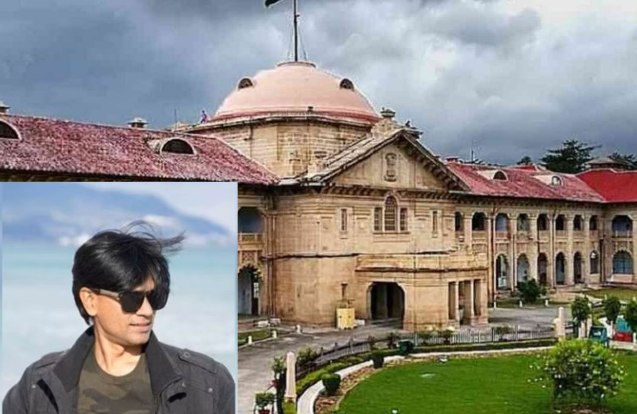Allahabad: In a concerning turn of events, the Allahabad High Court has been informed that Alt News co-founder Mohammed Zubair has been charged with allegedly endangering India’s sovereignty, unity, and integrity under Section 152 of the Bharatiya Nyaya Sanhita (BNS). The charges arise from an FIR filed against Zubair for a tweet criticising hate speech by Yati Narsinghanand, a controversial priest known for inflammatory remarks, reports Bar & Bench.
Zubair, a prominent journalist dedicated to exposing misinformation and hate speech, has sought legal protection from arrest, stating that the FIR is a politically motivated attempt to silence dissent and shield communal elements. His tweet, which called out Narsinghanand’s derogatory comments about Prophet Muhammad ﷺ, was intended to highlight the growing issue of communal rhetoric in public discourse.
The FIR was filed by Udita Tyagi, General Secretary of the Yati Narsinghanand Saraswati Foundation, accusing Zubair of inciting violence. However, Zubair’s plea before the court emphasised that his actions were aimed at bringing attention to repeated instances of hate speech, not inciting unrest. Notably, the complainant herself allegedly admitted on social media that the FIR was a “publicity stunt,” raising questions about the legitimacy of the charges.
Despite this, the Ghaziabad Police added additional charges against Zubair under the IT Act and various sections of the BNS. These developments have raised serious concerns about the misuse of legal provisions to target journalists and suppress accountability.
Zubair’s work as a fact-checker has been instrumental in exposing communal narratives and holding hate speech perpetrators accountable. Critics argue that the charges against him are a calculated effort to deter voices that challenge divisive agendas.
The case also sheds light on the double standards in addressing hate speech. While multiple FIRs have been filed against Narsinghanand for his incendiary remarks, no substantive action has been taken against him. Instead, the focus appears to have shifted to Zubair, who has consistently spoken up against communal hatred.
As the next hearing is scheduled for December 3, civil society and media organisations have rallied behind Zubair, emphasising the importance of protecting press freedom and ensuring that laws are not weaponised to intimidate those speaking truth to power.
In light of these developments, supporters of Zubair are urging citizens to initiate a trending campaign on social media, especially on Twitter, to highlight his plight and demand justice. Such a campaign could amplify public awareness and convince authorities to uphold the principles of free speech and democracy.
This case serves as a crucial test for India’s commitment to democracy, free speech, and justice.




